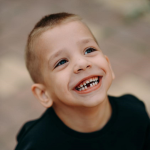Deficit Autism
Deficit autism is a type of organic autism. The term itself implies the presence of deficiency and regression of personal development; the manifestations of the disease are associated with depersonalisation. As a rule, this form is diagnosed in late childhood. It can be characterised as more complete and pronounced compared to the symptoms that accompany other forms of ASD.
Symptoms of deficit autism:
- Self-absorption or introversion. It is perceived by patients as frequent thoughtfulness, isolation from everyone, and withdrawal into oneself.
- Self-isolation from emotionally important people. This includes friends, family, and neighbours.
- Loss of interest. Things that were previously important and interesting suddenly lose their value and former meaning.
- Emotional deficiency. Absence of an emotional reaction to things happening around the patient. Speech, facial expressions, and actions don’t have an emotional colouring anymore.
- Lack of an ability to empathise. Children with ASD do not notice the psychological and emotional state of people around them.
- Absence of imitation. Autistic children are not inclined to take into account the authoritative opinion of an adult and do not follow good examples.
- Weak sense of humour. Almost all children with deficit ASD are perceived as being too serious. They don’t understand jokes and metaphors.
- Presence of rigorism. This term means unnatural, pretentious, and ostentatious correctness, an adherence to clear boundaries and moral beliefs.
- Ascetic perception. A rejection of the usual joys of life and comfort, the desire to limit oneself.
- Role diffusion. A common inability among autistic people to accept and understand their social role and perform its functions.
- Anomia. It is a difficulty with self-identification of one’s culture, nation, and environment. Autistic children do not recognise traditions or habitual standard norms of behaviour and are perceived by others as “not of this world.”
- Disorientation in values. Giving special value to things that are perceived as secondary, levelling out significant and important points.
- Protocolary speech. Due to their erudition, most autistic children use book clichés, pompous speech, catchphrases, and other vivid language forms. This unnatural correctness often surprises others. At the same time, the patient has great difficulty using simple words characteristic of everyday speech.
- Rejection of their own diagnosis with formal criticism. Of course, they understand that they are sick, but they refuse to accept this and behave accordingly (refusing to attend all medical appointments).
Effective correction of childhood autism deficits
Because this type of ASD manifests itself in later childhood, doctors can often offer only supportive symptomatic therapy. However, treatment of childhood autism spectrum disorder with stem cells is a more recent approach which make it possible to influence disease progression more thoroughly. Such treatment of childhood autism is based on the ability of stem cells to restore the correct structure of the brain that has been altered due to ASD development.
Get treatment that has no equal — do everything possible to stop the development of the disease!
Apply online to the Mardaleishvili Medical Centre and get a free remote consultation.
Autism Treatment Center Videos
Autism treatment with own stem cells
Cord blood association congress
International Quality Crown
Autism Treatment Reviews
Autism treatment with own stem cells
The story of Alessandro (6 years old)
Autism Patient Testimonial - Stem Cell Treatment
Clients Testimonials

Feedback from Igor, David’s father (12 years old) Read More
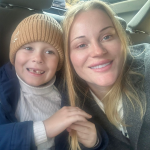
Feedback from Olga, Fedya’s mother Read More
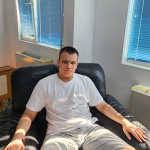
Feedback from Natalia, Radomir’s mother (15 years old) Read More
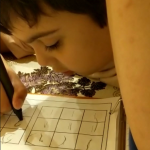
Feedback from Esther, Samuel’s mother (8 years old) Read More
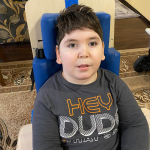
Feedback from Abibe, Selim’s mother (7 years old) Read More
